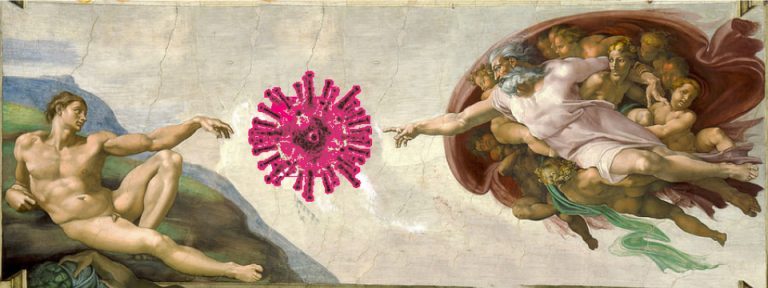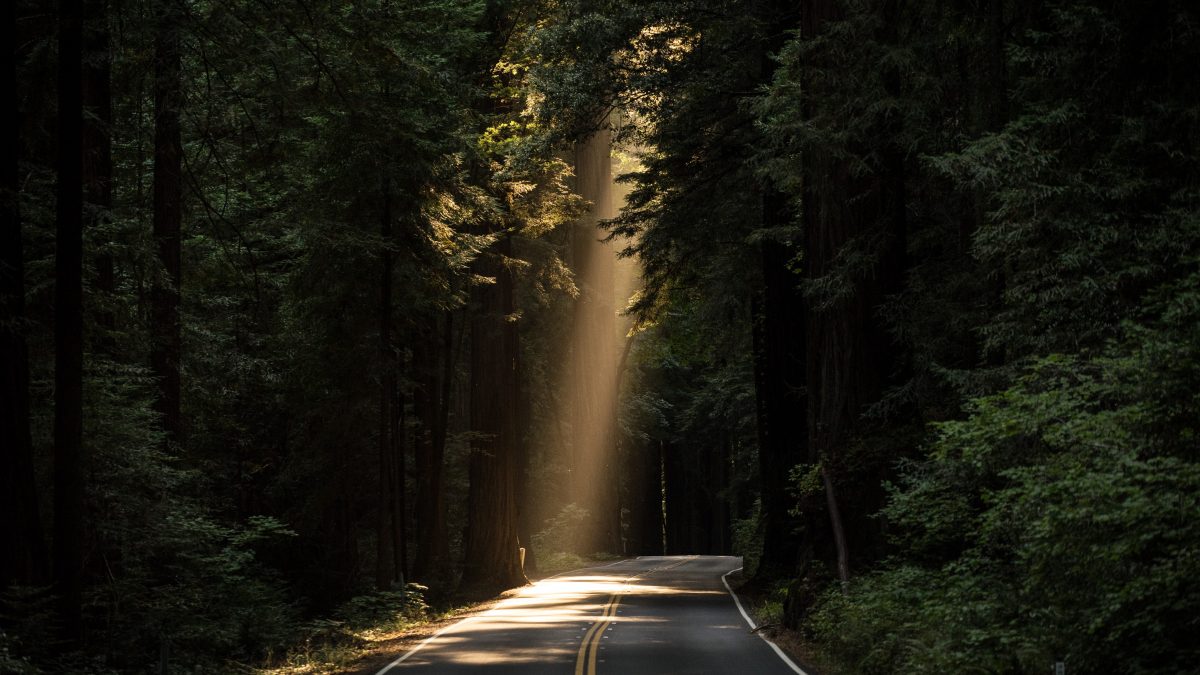
Coronavirus and God
April 10, 2020
Couldn’t God have created a world without the coronavirus?
April 29, 2020In January this year I started to muse about how the Extinction Catastrophe we are facing is connected to global warming and the extinction of species and in particular the work being done by Greta Thunberg and Extinction Rebellion to educate us all and lead us to action to save our beautiful planet.
Now the world is having to face a great plague in the form of the Coronavirus – the like of which has not been seen since the Spanish Flu epidemic of 1918-20 and reminiscent of the Black Death and other plagues which devastated society in the Middle Ages.
The two things are related. We have become a global world in the sense that trade covers all corners of the world and as goods travel, so do people – both for business and for tourism. For many, their families are spread all over the world, and although it was not uncommon for poor people to leave their homes in search of a better life in the USA or Australia in the 19th century, now the middle classes do it too, while poor people the world over come to Europe in search of a living.
In this interconnected world it cannot be surprising if disease spreads globally too. Already, in the 21st century, we have seen the ravages of Ebola and Sars/Mers – though not on the scale of Covid.
What can we do? Obviously the immediate crisis of illness means that we must obey government and public health limits on our behaviour and do our best to support the NHS and all the other key workers who put their lives at risk for us.
But in the long term, we have to look ahead to when things begin to get back/forward to the new normal. Do we have a sensible plan which people can understand for the gentle ending of lock down? How are we going to get our country and the world economy back on track and can we find some way of paying for all the Government funding which will be required?
At the beginning of 2020, the world was preparing for an environment summit in Glasgow, now postponed to 2021, and there was talk of a Green New Deal. In the UK and in the EU, we were also planning the settlement for the UK’s exit from the EU. But it is vital that as we rush to get society and economies back to “normal” we don’t forget the urgency of the Environmental Catastrophe which we face.
We are enjoying good weather – a great help at least for those with gardens or with access to the countryside – but in itself a loud intimation of global warming, as well as making even more evident the difference between the affluent and those stuck in a small flat or less with not even a balcony. One thing the shutdown has given us has been clear skies and unpolluted streets. We must ensure this continues. So, rather than spending to return us to the previous situation, we must press our Government to ensure we move forward to a greener future, with improved air quality and less damage to our world environment.
This will mean having to pay more for goods and services and probably not going on some types of holidays – perhaps this will happen in any case! We can create jobs (to replace those lost) by investing in solar and wind power (instead of coal-fired, oil and nuclear energy), spending on green travel alternatives (eg bicycles and public transport) and improving our housing stock so that all new buildings are obliged to follow green guidelines. We must be prepared to pay a surcharge on goods produced elsewhere in the world that make use of coal and oil power, so that the polluter pays – whether that is the manufacturer or the end user. There should be no helping hand for airlines, oil companies or car manufacturers!
If we accept this as an opportunity we could become technical green innovators. We will need to look again at how we produce goods and how we feed ourselves, so we can reduce the need for intercontinental transportation of goods. We will always need to trade with the rest of the world, but we may need to be more innovative in how we do this and we should certainly be prepared to be generous in the way we trade with the poorest countries in the world. An important part of future trade relations will be to respect others and aim for a more equal society.
The future of our world is urgent and it involves cooperation and leadership. I pray that the right people will come forward. We must all play our part – from lobbying our MPs, to joining Extinction Rebellion, or signing petitions. Church membership may not be what it was, but just as the charity sector has had a huge role in helping to ameliorate poverty through foodbanks and working with disadvantaged people in every walk of life, so we must remember that church people together can influence events simply by working together.
Rosalind Lund, Membership Secretary for Modern Church




